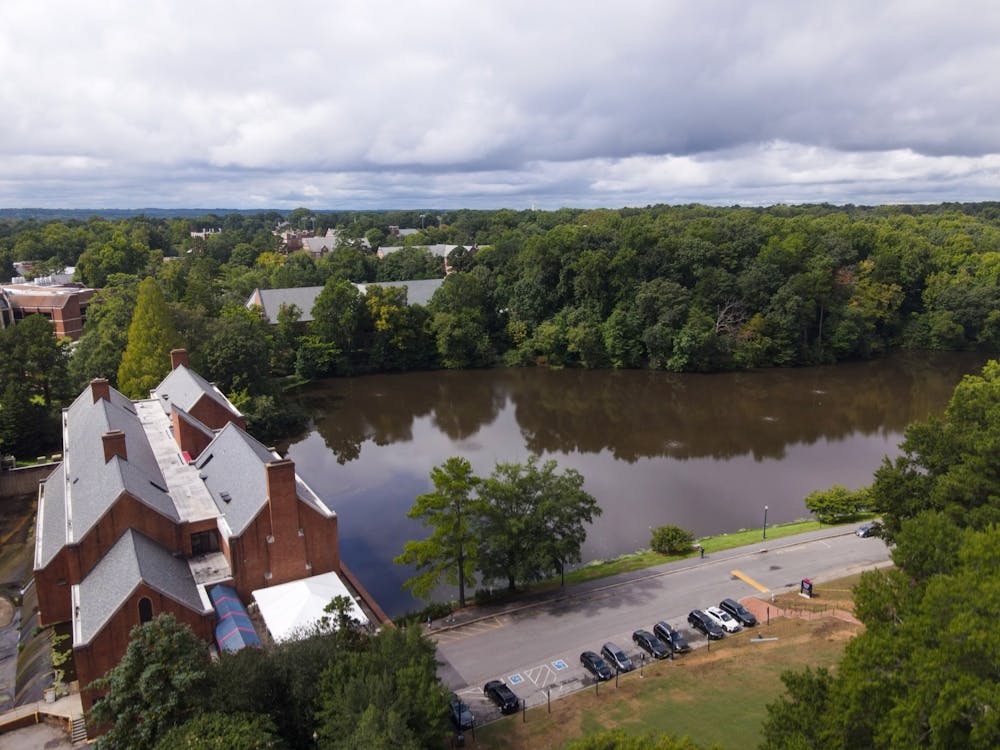Editor's note: Confidential sexual assault resources for UR students include CARE Advocates, which can be reached at advocate@richmond.edu or 804.801.6251; Peer Sexual Misconduct Advisors (PSMA), at psma@richmond.edu or 804.346.7674; CAPS, at CAPS@richmond.edu or 804.289.8119; Virginia LGBTQ Partner Abuse and Sexual Assault Helpline (24/7), at 866.356.6998; Greater Richmond Regional Hotline (24/7), at 804.612.6126; National Sexual Assault Hotline (24/7) at 800.656.HOPE.
Callisto, a sexual assault prevention and protection resource, will launch at the University of Richmond on Nov. 14.
One in five women, one in 13 men and one in four gender-nonconforming students are sexually assaulted during their college career in the United States, and 90% of sexual assaults are committed by repeat offenders, according to the Callisto website.
As a trauma-informed third-party platform, Callisto works to make it easier for sexual assault survivors to report and name their assailant, with a goal to stop repeat offenders while prioritizing a survivor’s privacy.
“There is no ‘right’ way to respond after experiencing assault, and there is no ‘standard’ story,” according to the website. “We believe you and we are here to support you as you think about what you’d like to do next. The important thing is knowing that the choice of next steps is yours to make.”
Callisto is not-for-profit and currently available at 34 colleges and universities across the nation. UR will be the first campus in Virginia to offer it.
The platform uses a prevention-targeted algorithm which sorts data inputted by survivors and field experts into a matching system, which detects repeat offenders.
By logging into the site with a UR email address, survivors of sexual assault at UR will be able to identify their offenders by name, phone number or email address. The information is encrypted and securely stored. When two or more survivors name the same offender, a “match” occurs.
The survivors then determine what action they want to be taken. A legal options counselor contacts the survivors to explain their options in a confidential conversation. Survivors who do not want to go through the matching process also have the option to create a record securely documenting what happened while they decide what they want to do.
Because Callisto is not connected to UR, it does not share information about the survivor to school officials nor does it have any formal contractual agreements for information sharing with Title IX.
Sai Poluri, senior class chair of the Richmond College Student Government Association, initiated the UR launch and has been working with the organization to bring the resource on campus for the past two years.
Poluri first reached out to Callisto during his sophomore year when he was the vice president for student affairs of RCSGA. After talking with UR administration and the Title IX office, his goal of bringing Callisto to campus began to materialize.
Enjoy what you're reading?
Signup for our newsletter
“I think that, if anything, the recent arrest just shows that we need more resources now more than ever,” Poluri said in regard to the arrest of a sophomore student.
The UR Police Department has sent out four timely warnings for sexual assault this semester.
Every time Poluri saw a timely warning, he was reminded of the high rate of sexual assaults that occur on college campuses, he said. Because Poluri knows he cannot prevent every assault from happening, he wants to help survivors by offering them a resource, he said.
“If even one student ended up benefiting from Project Callisto, then that’s enough for me,” he said.
Four out of five female survivors of sexual assault do not report, according to the Department of Justice. By giving survivors a secure, private platform, Callisto aims to minimize the factors that prevent survivors from reporting.
“It’s an easy way for survivors of sexual assault to document their experiences so they don’t have to relive it,” Poluri said.
Callisto uses documentation from the Forensic Experiential Trauma Interview, which is specifically designed to help survivors preserve information after an incident to avoid retraumatization, according to the website.
In addition to Title IX, UR offers several emergency and confidential sexual assault resources.
“I believe Project Callisto is a great resource -- not replacement -- for Title IX,” Poluri said.
Callisto’s website also emphasizes that it is not a reporting mechanism for UR, in that it does not have a formal partnership with the university nor any contractual information-sharing agreements.
All data entered in the system is encrypted and can only be viewed by the survivor, or in the case of a match, by the legal options counselor, according to the website. This ensures that survivors maintain full control over their data and options.
Survivors created the platform in 2011 for other survivors. Callisto is funded by philanthropic supporters, including; Google.org, Y Combinator, Greylock Partners and the Skoll Foundation, according to the website.
Contact News writer Natasha Sokoloff at natasha.sokoloff@richmond.edu.
Support independent student media
You can make a tax-deductible donation by clicking the button below, which takes you to our secure PayPal account. The page is set up to receive contributions in whatever amount you designate. We look forward to using the money we raise to further our mission of providing honest and accurate information to students, faculty, staff, alumni and others in the general public.
Donate Now



